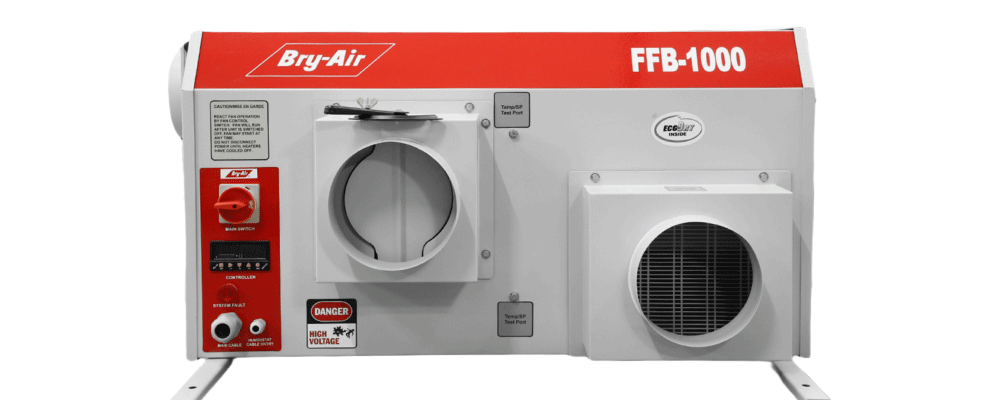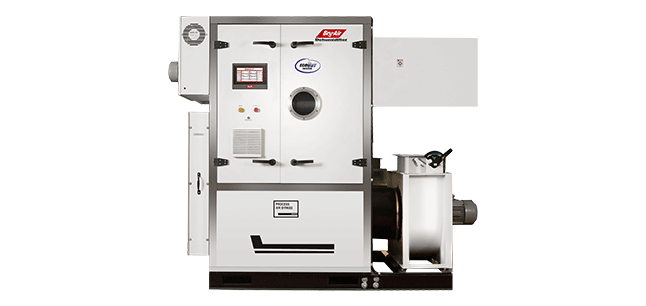Almost, all airline companies maintain/store Jet engines as standby for quick replacement. These Jet engines are very expensive and are usually needed in emergencies, such as engine failure.
The Jet Engines are generally stored in a room in/near the hangars at Airports. While in storage, they get damaged due to corrosion. Ferrous materials like iron and steel corrode in presence of moisture. Electronic equipment and components also suffer from micro-corrosion.
Corrosion does not occur in dry air. It is the invisible water vapour that is always present in the air, which causes corrosion of metal components and parts, in storage.
Water vapour condenses, on any surface, colder than the dew point temperature of the surrounding air mass. Also, sudden changes in temperature, within the room, affect the internal humidity environment and lead to condensation on any surface. This subsequently leads to corrosion.
The critical humidity level which is at 45% is approximately the same for clean and polluted air, however, the rate of corrosion is faster where surfaces are exposed to polluted air in combination with high relative humidity.
To prevent corrosion, the relative humidity of the air needs to be controlled to a level where it not only prevents condensation but is reduced to a critical level below which corrosion does not occur. As a general rule, rust and other oxidizing type corrosion reactions will not occur if the relative humidity in the area is maintained at or below 40% RH. Materials or product residing in this atmosphere need not be coated with oil or other surface protecting materials, and can thus be kept in ready-to-use condition. This significantly reduces the cost of painting and other maintenance normally required to control corrosion.
Most metal parts do not need to be stored in areas that need temperature control. Thus humidity control through desiccant dehumidification is a much more economical method than air conditioning.
Corrosion can be eliminated by controlling the moisture levels to less than 45% RH at ambient conditions in the storage area. Humidity control by dehumidifying such storage areas ensures that the engines in storage do not get corroded.
Bry-Air Enviroliners are safe, cost-effective, and quickly assembled humidity control housing for safe storage of small equipment like engines, gearboxes, small arms, ammunition, optics, ration, documents, uniform, metal components, etc.
The Bry-Air Enviroliner is the ideal solution to humidity related storage problems. The Enviroliner is a custom-made, modular PVC storehouse, integrating a Bry-Air Dehumidifier which can convert any space in whole or in part, into cost-effective humidity controlled-storage area, without any special building requirement. All that is needed is a floor and a ceiling. Equipment and material stored in Enviroliner are protected against the damaging effects of moisture corrosion/rust, mold, fungus, etc.
Bry-Air Dehumidifiers can maintain RH as low as 1% or even lower at a constant level, regardless of ambient conditions during production, processing, storage, and packaging.
Bry-Air Dehumidifiers are CNC fabricated with powder-coated finish incorporating the high performance, metal silicate, fluted media.
Bry-Air Dehumidifiers help reduce the relative humidity to the desired constant level, by removing moisture from the air, most effectively and economically. They can be successfully used, for a wide range of applications, in industrial manufacturing, processing, drying, storage, and packaging.

The powder coated, CNC fabricated compact desiccant dehumidifiers (FFB series 170-4500 CMH) are lightweight and can be installed above the false ceiling.

For complete air handling and environment control needs (ranging from 2,500 CMH to 25,000 CMH)





